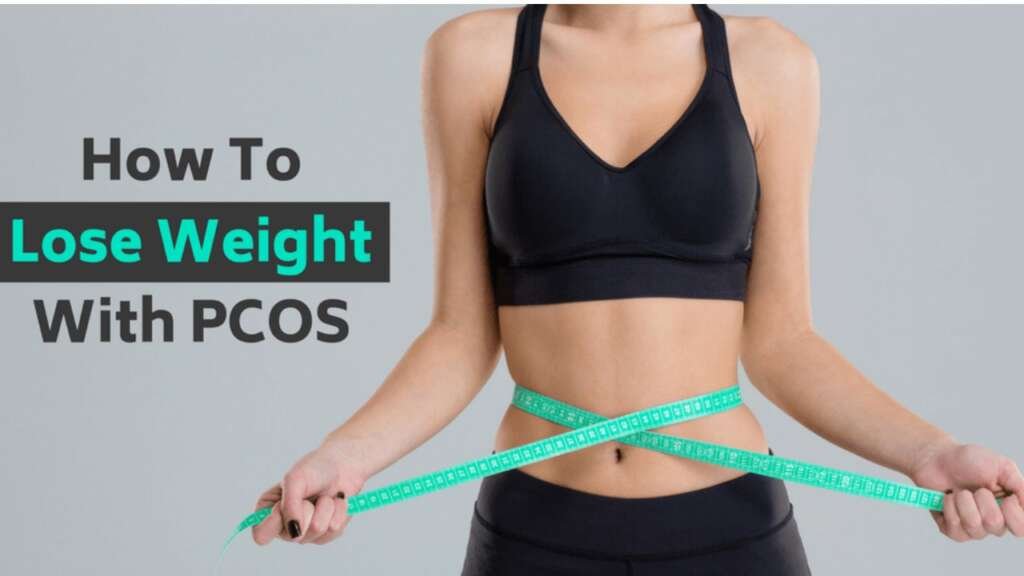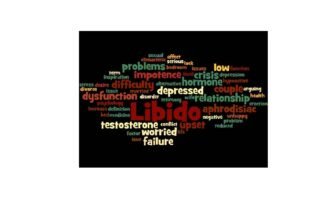Polycystic ovary syndrome (PCOS) is a hormonal illness familiar to women of reproductive age. Women with PCOS, to put it in simple words, usually have infrequent or continued menstrual periods. Looking to know the causes? Let’s explain.

What Is PCOS?
Polycystic Ovary Syndrome(PCOS) is a conditions that affects a woman’s hormone levels. It is a hormonal disorder where we will have enlarged ovaries with small cysts on the outer edges.
Causes of PCOS:
Indications of PCOS
- Irregular periods
Insufficient ovulation stops the uterine lining from shedding every month. A few women with PCOS get less than eight periods a year or at times none at all.
- Heavy bleeding
The uterine lining builds up for an extended period. Accordingly, the periods you do get can be substantial as compared to normal.
- Hair growth
More than 70 per cent of women with this disorder grow hair on their face and body — counting on their back, stomach (belly), and chest. This excess hair growth is named hirsutism.
- Acne
Male hormones can make the skin oilier as compared to usual and lead to breakouts on parts like the face, chest, and upper back.
- Weight gain
Most women with PCOS are weighty or have obesity.
- Male type baldness
Your hair gets thinner and start falling out.
- Darkening of the skin
Shady patches of skin can form on the body on the neck, in the groin, and under the breasts.
- Headaches
Changes in hormones can cause headaches in some women.
PCOS: Weight Loss
You must be by now wondering to know how to enjoy a healthy life with PCOS. Well, even a little weight loss can work. Let’s suggest you some helpful tips for losing weight with PCOS.
Losing weight not only reduces your risk for many diseases, it can as well make you feel better. Shedding just 10% of your body weight can bring your periods back to normal when you have PCOS. It can too support relieve some of the warning signs of polycystic ovary syndrome.
Do you have polycystic ovary syndrome (PCOS)? Figuring out how to drop weight with PCOS isn’t an easy task. It is a tough job to lose weight with PCOS.
Lose Weight With PCOS – [ TIPS & TRICKS ]
- Reduce Your Carb Intake
Dropping your carb consumption may support control PCOS because of carbs’ influence on insulin levels.
Around 70% of women with PCOS have insulin resistance. This is when your cells cease to identify the effects of the hormone insulin. Insulin is essential for blood sugar supervision and energy storage in your body. Research speaks about high levels of insulin with higher body fat and weight gain in the general population.
Study says, overweight women with PCOS and insulin resistance first followed a 3-week diet of 40% carbs and 45% fat, subsequently, a 3-week diet of 60% carbs and 25% fat. Protein consumption was 15% throughout each phase. While blood sugar levels were alike all through the two phases of the diet, insulin levels went down 30% at the time of the lower-carb, higher-fat stage. A low-glycemic diet may be helpful for women with PCOS. The glycemic index (GI) is a measurement of how speedily a specific food increases blood sugar.
Research conducted showed that, women who had their normal diet for 12 weeks, followed by a low-GI diet for 12 weeks; their measures of insulin sensitivity were pointedly better during the low-GI stage.
- Get Sufficient Fibre
Fibre, to put in simple words, helps you stay full after a meal. a high-fibre diet may help weight loss in women with PCOS.
It is said that higher fibre consumption was connected to lower insulin resistance, total body fat, and belly fat in women with PCOS, however, not in women without PCOS.
In another study conducted it was found that 57 women with this state, followed higher fibre intake achieved lower body weight.
- Workout first, eat later
Exercising immediately before a meal can help rev your metabolism. Accordingly, you end up storing more carbs as energy than fat. Most importantly, exercising regularly trains your body to wear out extra glucose stores in your body. This can help keep your insulin levels down.
It is recommended that women with PCOS should focus on high-intensity interval training. This utilizes short, intense bursts of energy. Reputed doctors recommend you to follow any type of cardio that gets your heart rate up. It is suggested to add in more strength training to your workouts. This is because muscles use glucose for energy, building more muscle can only perk up insulin sensitivity and metabolic health.
- Add healthy fats to your plate
Healthy fats can also keep you full. This is particularly if you’re trying to keep carbs to a minimum. Women with PCOS who ate a diet higher in fat dropped more weight over eight weeks than women with PCOS who had a diet lower in fat. It is suggested to try adding 200 calories of healthy fats to each meal.
- Eat Enough Protein
Protein helps even out blood sugar and raises feelings of fullness after a meal.
It may as well support weight loss by dropping cravings, helping you burn more calories, and controlling hunger hormones.
Research was conducted on 57 women with PCOS. They were given either a high-protein diet, with more than 40% of calories from protein and 30% from fat or a standard diet involving less than 15% protein and 30% fat.
It was noticed that women in the high-protein group dropped an average of 9.7 pounds (4.4 kg) after 6 months. This is meaningly more than those in the control group.
Not getting enough protein? If so, you can add it to your meals or go for high-protein snacks. Include eggs, nuts, dairy, meat, and seafood as healthy, high-protein foods in your diet. Including sufficient protein can be a miracle.
- Be aware of liquid calories
High-calorie beverages are generally less filling than a solid food meal of the same amount of calories. Actually, people who drink high-calorie beverages have a habit of consuming more calories in general.
If you are looking to lose weight, it is that suggested that you drink plenty of water. You are recommended to minimize intake of a few beverages like coffee, alcoholic beverages, fruit juice soda etc.
- Cut your caffeine intake
Not a good news for coffee lovers though but the fact is “caffeine actually has a huge effect on hormone levels”. Studies have shown that rise in caffeine intake can affect in ovulation and upsurge stress hormones, which can cause hormonal illnesses.
You are suggested to cut your caffeine intake. It is better to limit yourself to one/serving cup a day.
- Practice mindful eating
Sitting down for particular meal times, eating unhurriedly without interruptions and truly savouring your food can support you be more in tune with your hunger levels. This is a simple way to practice portion control with your meals and sidestep foolishly eating too much. To put in simple words, with less overeating comes weight loss.
- Keep strain in check
Stress increases cortisol levels. This is connected to weight gain. Enduring stress can lead you to stock more fat in your stomach area, hence trying to control that anxiety; whether through deep breathing, meditation, sleep, yoga, or other self-care—is certainly useful if you’re trying to lose weight.
- Stop looking for instant fixes
If you have PCOS, losing weight is important. Controlling your weight will help you guard yourself from PCOS-related problems say, infertility and diabetes. Lasting, health-preserving weight shedding necessitates you to practice a lifestyle that makes your health a priority. Well, it is not always an easy thing to do.
•Eat more fermented foods
Often women with PCOS may have less healthy gut bacteria compared to women without the disorder, which may be another reason that they struggle with weight increase. Making attempts to increase healthy bacteria to your system could help.
Even for women without PCOS, studies propose that including probiotics to your diet can support with weight loss. It is often said that adding one fermented food, something that naturally contain bacteria can be helpful to gut health.
- Avoid Processed Foods and Added Sugars
The most important tip to drop weight with PCOS is to cut down on your consumption of certain unhealthy foods. Processed foods and added sugars may increase blood sugar levels and add to your danger of insulin resistance, which is connected to obesity.
Experts commend that woman with PCOS limit their consumption of added sugars and refined carbs to control indicators and keep a healthy body weight.
Foods high in extra sugar and refined carbs take in cakes, cookies, candy, and fast food.
- Get Enough Sleep
Adequate sleep is exceedingly essential for your health. If you have PCOS, you may experience sleep disorders, counting excessive daytime sleepiness, sleep apnea, and insomnia.
Insufficient sleep has been shown to rise the activity of hormones that drive hunger, for example ghrelin and cortisol, which may motivate you to eat more all through the day.
To put in simple words, inadequate sleep is linked with a higher risk of being obese or overweight.
Studies found that those who slept less than 5 hours per night were knowingly more likely to be obese.
- Get your thyroid checked
Thyroid and PCOS imbalance habitually go holding hands. However, many women are only diagnosed with one of them. They are left in the dark about the other. Knowing about any underlying thyroid problems can make a massive difference when it comes to finding out how to bring back balance within the whole body, and lose weight naturally.
- Cut Inflammation
Irritation is your body’s normal retort to contamination or injury. However, chronic tenderness which is common in women with PCOS is associated to overweightness. Sugar and processed foods may cause swelling.
A study was conducted on 16 women with PCOS who took a one-time dose of 75 grams of glucose with a particular type of sugar. They had higher blood markers for tenderness, than women without this disorder. A Mediterranean diet which is high in fruits, vegetables, olive oil, whole grains, and omega-3-rich foods, like fatty fish may protect against swelling.
Why Is It So Hard To Lose Weight With PCOS?
Weight loss resistance is a common symptom of PCOS and being obese can also make other indications of PCOS, like infertility, worse. There are truly all kinds of vicious cycles like this when it comes to PCOS. Accordingly, it’s so essential for women with this diagnosis to grow a good concept of what is going on inside their bodies, and what they can do about it.
Many regular doctors will just ask their patients with PCOS that they should lose weight, and not guide them with the ways of how to lose weight. Besides they won’t even suggest diet and exercises to follow. This is truly frustrating, as when patients aren’t well aware of their condition. This makes it more difficult for them to decide how they can overcome the problem. Eventually, they’ll often end up trying and failing to lose weight. This will make them feel completely defeated. Real advice and guidance is exceedingly essential.
PCOS Weight Loss: Foods To Avoid
- Refined and processed foods
- Sweets
- Fried foods
- Oil
- Red meat
- Processed Fruit Juices and Concentrates
How PCOS affects your body
- Infertility
- Metabolic syndrome
- Sleep apnea
- Endometrial cancer
- Depression
PCOS Weight Loss Benefits
Appreciatively, there are several treatments available these days that can help you control your PCOS. If you are obese, loosing weight can improve both reproductive aspects like balancing your menstrual cycle and helping with ovulation, besides metabolic ones like dropping insulin. Loosing weight may also help to improve your PCOS signs, but won’t essentially make them go away for good.
Following a healthy diet and practicing regular exercise routine, can help your body increase its insulin response and conceivably cut androgen production. This may support decrease indications, bring back normal menses and make it easier to conceive.
The effects of PCOS differ from person to person. It is hence exceedingly essential that you must consult a doctor before charting your diet plan. Discuss with experts, follow diet and workout as suggested.
Enjoy a healthy life!







